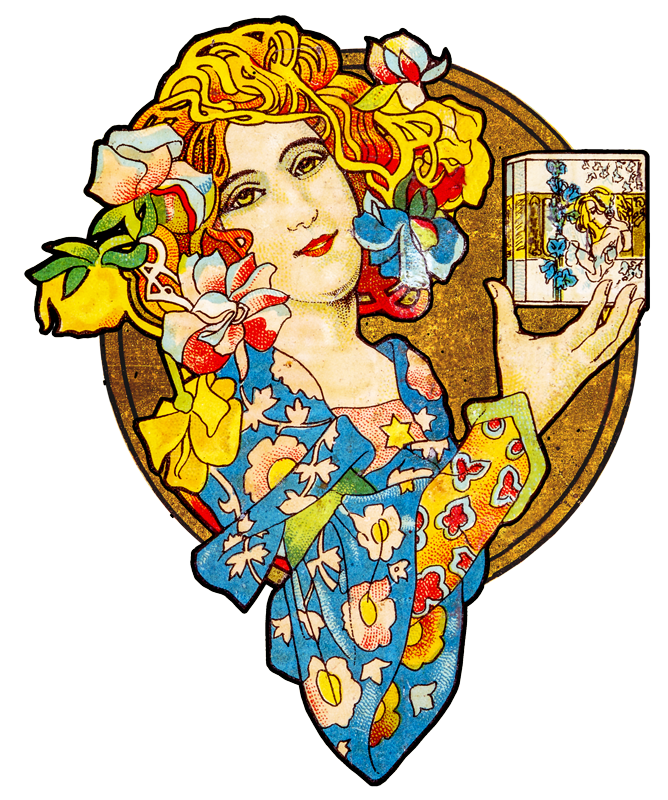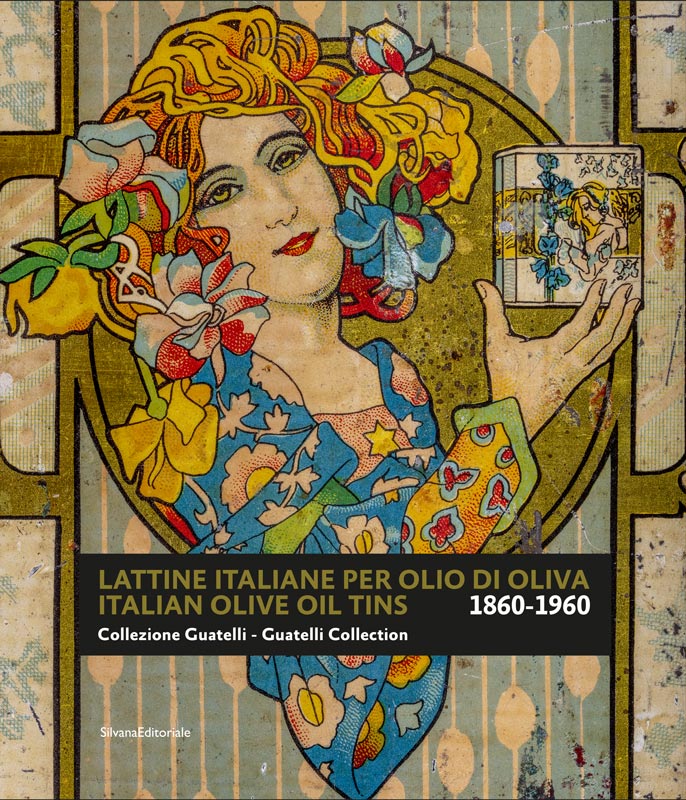MUSEO
COLLE
ZIONE
GUATELLI
1860 – 1960
Collection of Historical Olive Oil Tins
by Tiziana Guatelli
Tiziana Riva Guatelli’s collection is a unique, one of a kind assortment of over 6,000 pieces of lithographed tin cans for olive oil.
It represents an important testimony to the flourishing industry associated with the production and trade of oil that developed between the late 19th century and the early years of the 20th century in Imperia.

Olive Oil Tin Cans Museum in Imperia
Story of Italy through Olive Oil Tins

To export the precious ingredient abroad, Ligurian entrepreneurs resorted to using tin cans, but they were not satisfied with the simple design; they wanted them decorated and designed by famous artists, who turned those tins into works of art.
In the collection, one can admire the fascinating packaging and design characterized by spectacular chromatic combinations typical of Art Nouveau, the Liberty period, and the Avant-gardes.
The beautiful tin cans were intended not only for the small bourgeois families living in perfect tranquility but also for the lower classmen and the disenfranchised who embarked for the Americas in search of fortune.
The emigrants, nostalgic for their homeland, as well as for the oil, wanted the tin cans to be beautiful and represent the prestigious symbols of Italy.
management

Manuela
Giamminola
Guatelli

Riccardo
Guatelli

Tiziana
Riva
Guatelli

Daniela
Lauria

The book “Lattine italiane per olio d’oliva”
The book “Italian Olive Oil Tins 1860-1960. Guatelli Collection” traces the history of the
entire collection: from the boxes for export to those intended for the domestic market,
produced between the late 19th century and the end of the Second World War.
collezione
guatelli
Quando misi piede a terra, mi voltai a guardare ancora una volta il Galileo, e il cuore mi batté’ nel dirgli addio, come se fosse un lembo natante del mio paese che m’avesse portato fin là. Esso non era più che un tratto nero sull’orizzonte del fiume smisurato, ma si vedeva ancora la bandiera, che sventolava sotto il primo raggio del sole d’America, come un ultimo saluto dell’Italia che raccomandasse alla nuova madre i suoi figliuoli raminghi.
Edmondo De Amicis, Sull’oceano (1889)

